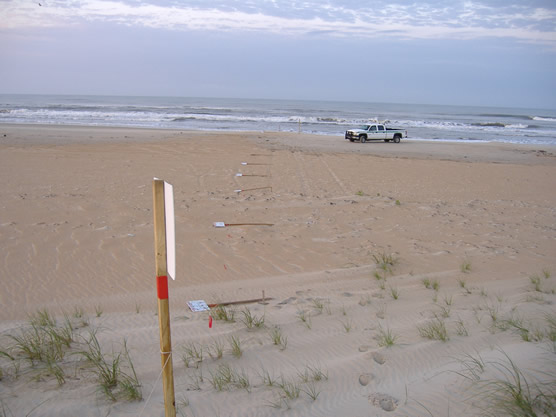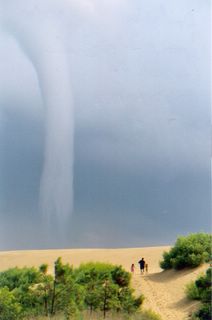Derb Carter's new suit
 I got a call from a source in Judge Boil's office yesterday. I can now confirm that the Southern Environmental Law Center has filed a suit in federal court seeking enforcement of the Endangered Species Act. The suit names the US Fish and Wildlife Service (FWS) and the Southern Shores Volunteer Fire Dept. among others aksing the court to immediately end all efforts to put out the fire in the Pososin Lakes Wild Life Refuge. I contacted Derb Carter, lead counsel for the suit, and asked him to explain the basis for the legal action
I got a call from a source in Judge Boil's office yesterday. I can now confirm that the Southern Environmental Law Center has filed a suit in federal court seeking enforcement of the Endangered Species Act. The suit names the US Fish and Wildlife Service (FWS) and the Southern Shores Volunteer Fire Dept. among others aksing the court to immediately end all efforts to put out the fire in the Pososin Lakes Wild Life Refuge. I contacted Derb Carter, lead counsel for the suit, and asked him to explain the basis for the legal action"The Endangered Species Act is supposed to protect endangered species, fire is a natural process that restores habitat and renews the environment, it helps species flourish. By trying to put out the fire in the Pocosin Lakes Reserve the FWS is endangering species. We think they should stop and just let the fire burn baby burn" Carter explained. " We believe the ESA supports us in this action since it does not name fire as a specific threat to species, As a further benefit this fire, if allowed to burn, may force people to leave the natural environment. The ESA is very specific that people endanger species not fire."
The suit specifically asks the court to restrain "all efforts to extinguish the conflagration now burning in Hyde and Tyrell County". The suit sites the FWS and the SSVFD as the prime agents trying to stop the fire. A spokesmen for the FWS responded "Makes sense to us" and explained that FWS had immediately stopped all activities in eastern North Carolina on learning of the suit (except the ongoing effort to block the replacement of the Bonner Bridge).
When contacted for comment SS Mayor Don Smith explained that since the Fire Chief's new salary was more than the Mayor's new salary we should ask the Fire Chief, noting he was too busy sulking about his betrayal by SS Town Council on the budget issue.
We contacted Defenders of Wildlife for additional comment but they explained they were too busy helping refugees from the fire find homes. A spokesman explained that "200 Black Bear and red wolves have been relocated to FEMA trailers in Swan Quarter and Pungo." DoW plans a countersuit in an attempt to require FWS to build a dome to cover the entire refuge to protect against future lightening strikes. "This tragedy could have been averted by FWS but they refuse to take reasonable steps to protect mother nature from herself."
Judge Boil has schedule a "listening" for next Monday at which time he will tell everyone what he thinks they should do!
 In a related story, the National Park Service NPS is investigating the death of a ghost crab last night on Coquina Beach, just south of the Nags Head Nuclear Waste Storage area (why else would they need all those sandbags) Visitors reported the crab was found at dawn in the middle of a tire track just east of the dune line. NPS has restricted all access to the area, which was already more isolated than the alien landing site in Roswell NM. The only vehicles permitted to drive on this beach at the time of the crab's death were NPS vehicles.
In a related story, the National Park Service NPS is investigating the death of a ghost crab last night on Coquina Beach, just south of the Nags Head Nuclear Waste Storage area (why else would they need all those sandbags) Visitors reported the crab was found at dawn in the middle of a tire track just east of the dune line. NPS has restricted all access to the area, which was already more isolated than the alien landing site in Roswell NM. The only vehicles permitted to drive on this beach at the time of the crab's death were NPS vehicles.Superintendent Mike Murray has called for "a roundup of all the usual suspects" and explained that his actions were "mandated by Derb Carter who is much smarter than Don Smith and the enitre NPS put together".
The North Carolina Coastal Federation issued a statement saying "The death of this innocent creature is the result of the unbridled access to our pristine beaches and could have been avoided if everyone would just leave and move to Durham. We are trying to save you but you aren't cooperating. "
The crab's family had not returned numerous phone calls at press time.
Ciao
Labels: CHNS, crabs, Derb Carter, fire, FWS, NPS, SELC, Southern Shores












